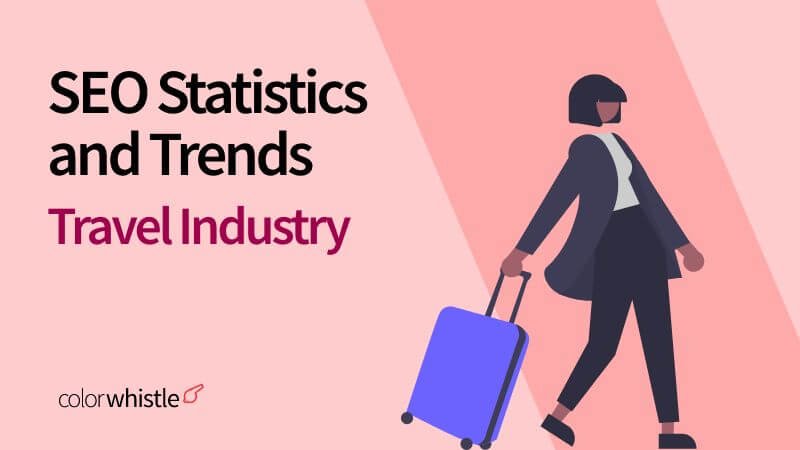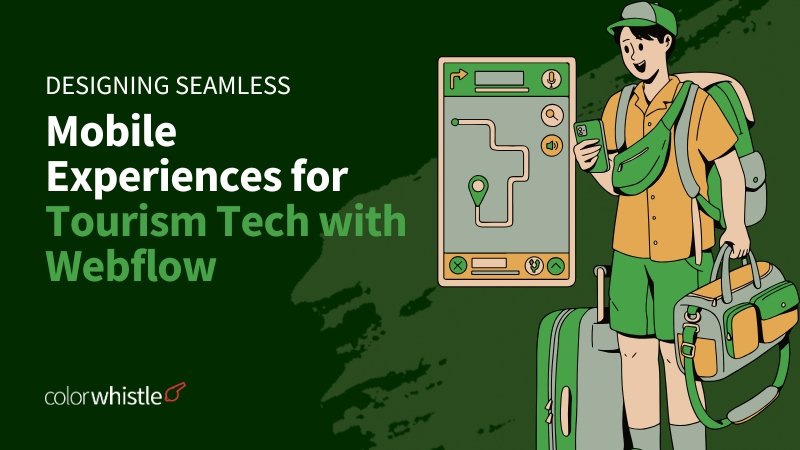AI Summary
Key Highlights of Travel Industry SEO Statistics 2026
This post explores critical SEO trends transforming the travel industry in 2026, emphasizing user-centric strategies and authentic content. The key insight: SEO now prioritizes real-world experience and AI-driven answer engines over traditional keywords. It targets travel marketers aiming to boost conversions by optimizing the buyer's journey, embracing AI summaries, and leveraging E-E-A-T principles. Highlighted methods include snippet optimization, voice search adaptation, and niche keyword targeting. Supported by market growth data and search behavior shifts, the blog guides travel brands to enhance visibility, trust, and revenue through strategic, human-first SEO tailored to evolving search technologies and user expectations.
“The helpful content update aims to better reward content where visitors feel they’ve had a satisfying experience, while content that doesn’t meet a visitor’s expectations won’t perform as well.”
Every business has likely felt the impact of Google’s algorithm updates. It’s like the story of Goldilocks and the Three Bears, where she found the baby bear’s porridge, chair, and bed to be just right. Similarly, Google now prioritizes content that is truly helpful and relevant to the industry.
When looking at the travel industry, there’s no shortage of OTAs and travel websites. If you’re one of them, standing out in the crowd can be tough. As a digital marketing agency, we’ve dug deep into SEO trends and statistics specifically for the travel sector. This blog aims to guide your travel business and help you shine brighter than your competition.
The Top SEO Trends of 2026
In 2026, the SEO landscape is undergoing a dramatic transformation, moving beyond traditional keywords and backlinks to a more nuanced, user-centric approach. With the rise of AI and changing search behaviors, the focus is now on delivering an experience that is authentic, helpful, and directly addresses the user’s needs.
The Rise of AI and Answer Engines
The days of a single, definitive list of search results are fading. In 2026, AI is fundamentally reshaping how we interact with search engines. Instead of a list of links, users are increasingly presented with AI Overviews that provide a direct, summarized answer. This shift means that earning the top spot is no longer just about driving clicks but about becoming a trusted source that an AI will cite. Furthermore, platforms like Perplexity, ChatGPT, and Gemini are emerging as significant non-Google traffic sources, serving as “answer engines” that go beyond a simple search bar.
Did you know?
According to a Semrush study, the appearance of AI Overviews in search results has grown by a staggering 115% in just a few months, from January to March 2026, indicating a rapid shift in how users get answers.
From Clicks to Conversions: Optimizing for Sales
The old metric of success—traffic volume—is becoming less relevant. In 2026, the focus is on optimizing for sales and genuine business outcomes. SEO is no longer just a top-of-funnel activity. It’s about creating content that guides users through the entire customer journey, from initial research to final purchase. This involves focusing on transactional keywords, creating conversion-optimized landing pages, and demonstrating a clear return on investment from organic channels.
The Human Element: E-E-A-T and First-Hand Experience
Google’s emphasis on the E-E-A-T framework (Experience, Expertise, Authoritativeness, and Trustworthiness) has solidified the importance of human-first content. In 2026, a critical aspect of E-E-A-T is first-hand experience. Simply rehashing information from other sources is not enough. Content that showcases genuine, real-world experience—whether it’s a personal product review, a detailed case study, or a demonstration of a skill—is being heavily prioritized. This authenticity builds a powerful form of trust with both users and search engines.
The Crystalization of User-Centric SEO
SEO in 2026 is less about tricking an algorithm and more about deeply understanding and serving the user. This user-centric approach is the core of modern SEO. It means prioritizing a fast, intuitive website experience, crafting content that perfectly matches user intent, and designing your site to be easily scannable and accessible. The goal is to provide such a seamless and helpful experience that users will not only find your site but will want to stay, engage, and return.
49%
of marketers report that organic search offers the best ROI of any marketing channel, making it a critical investment for brands.
Addressing the Zero-Click Challenge
With the proliferation of featured snippets and AI Overviews, a growing number of searches are zero-click searches, where the user’s question is answered directly on the search results page. In 2026, this isn’t a threat but an opportunity. The key is to optimize your content to be “snippet-friendly” by using clear, concise answers, structured data, and formatted lists. Earning these “position zero” spots still establishes brand authority and can lead to a significant boost in brand visibility and trust, even without a direct click.
Voice Search and Community Content
As smart speakers and mobile assistants become more commonplace, voice search optimization is more important than ever. This means moving from short, typed keywords to natural, conversational long-tail queries. Additionally, search engines are increasingly valuing content from real-world communities. Community search results from forums like Reddit and Quora are gaining prominence, as they are seen as authentic, user-generated resources. This trend highlights the importance of engaging with your audience on these platforms and building a reputation as a trusted community member.
The Final Nail in the Coffin for “SEO is Dead”
For years, skeptics have claimed that “SEO is dead.” However, the truth in 2026 is that SEO is more alive and essential than ever. The discipline has not died; it has simply evolved. The old tactics of keyword stuffing and link spamming are obsolete, replaced by a strategic, holistic approach that combines technical expertise, compelling content, and a deep understanding of human behavior. The myth of SEO’s death has finally been debunked, as it’s clear that the need to optimize for visibility and trust in an ever-changing digital landscape is a permanent business imperative.
Travel SEO in 2026: Navigating the Challenges and Opportunities
Core Challenges for SEO in the Travel Industry
Google’s Increasing Dominance: Google is actively prioritizing its own platforms, such as Google Flights and Hotels, making it significantly harder for independent travel businesses to rank for high-volume keywords and compete directly.
The Impact of AI Overviews: The rise of AI Overviews directly affects website visibility and traffic. With AI-generated summaries answering queries directly on the search results page, users are less likely to click through to a website.
Struggles for Small-Scale Bloggers: Due to Google’s Helpful Content Updates, small travel bloggers continue to face drops in organic visibility. Success now relies on longstanding authority and demonstrable first-hand experience in the locations they cover.
Key Opportunities
Leveraging Localized Content: Google is now favoring authentic, localized content from regional experts. This creates a major opportunity for brands to improve their local search rankings by providing unique, insider perspectives.
Prioritizing User-First Content: The E-E-A-T framework is a core ranking factor. By creating content that demonstrates genuine first-hand experience and expertise, you can build trust and future-proof your SEO strategy.
Did you know?
The travel industry has one of the lowest percentages of AI-generated content (1.70%). This reinforces Google’s E-E-A-T guidelines and underscores the value of human expertise and authentic experiences in travel content.
Key SEO Best Practices for 2026 and Beyond
Here are some of the most effective strategies for travel brands to succeed in 2026, optimized for clarity and impact.
- Optimize the Buyer’s Journey: Create content for every stage, from inspirational pieces to practical itineraries and conversion-focused pages.
- Embrace AI Integration: Align your strategy with AI Overviews by optimizing content to be concise and answer-focused, based on a competitive analysis.
- Target Low-Competition Keywords: Focus on regional and zero-volume keywords to attract a highly qualified, niche audience.
- Prioritize E-E-A-T: Avoid over-optimization. Instead, create authentic content based on your brand’s genuine experience and expertise.
- Boost CTR with Schema: Use travel-specific schema to create rich snippets and improve your click-through rate directly from search results.
- Strengthen Link-Building: Improve your off-site authority with reactive PR and authoritative “hero content” backed by credible data.
Key SEO Statistics
- The global SEO market is projected to grow from $82.3 billion (2023) to $143.9 billion by 2030.
- The mobile SEO market is expected to grow at a 10.0% CAGR by 2030.
- 49% of marketers report that organic search has the best ROI of any marketing channel.
- Google uses over 200 factors in its ranking algorithm and holds a 91.54% global market share.
- The #1 result on Google gets approximately 27.6% of all clicks.
- Organic search results that rank on page 1 of Google contain an average of 1,447 words.
- Nearly 60% of pages ranking in the top 10 on Google are 3 or more years old.
- 49% of US consumers begin their online shopping research on a search engine.
SEO Statistics for Travel Industry
The travel industry is undergoing a significant shift, moving from a focus on static product comparisons to experience-centric decision-making. This change is driven by users who want to fully envision their ideal trip. The growth in searches for “travel planning” by 19% in 2024 and a forecast of a further 7% growth in 2026 demonstrates this trend.
This shift is visible in the rising popularity of specific search terms that reflect a desire for structured, personalized journeys. For example, searches for:
- “Itinerary app” are up 18%
- “Trip organizer” are up 7%
- “Nice itinerary” are up 16%
- “Cruise ship itinerary” are up 15%
These trends highlight a clear opportunity for travel brands to provide rich, tailored content that acts as a subject matter expert and guides users through their journey.
Did you know?
The #1 result on Google gets approximately 27.6% of all clicks. This highlights the importance of moving up in the rankings to capture significant traffic.
The Power of Authentic Content
While AI is a growing part of search, the travel sector remains a stronghold for human-generated content. Travel (1.70%), along with food and news, has one of the lowest percentages of AI-generated content. This aligns with Google’s emphasis on E-E-A-T and underscores that authenticity, personal experience, and expertise are highly valued in this industry.
This is a critical point when considering that organic search accounts for 44.6% of revenue across multiple industries, including travel and hospitality. By providing genuine, user-first content that resonates with this new wave of experience-driven travelers, brands can capture a significant share of revenue and build a lasting connection with their audience.
Ready to Grow Your Search Engine Results?
In the dynamic landscape of the travel industry, keeping an eye on SEO statistics and trends is indispensable. These insights offer valuable guidance for travel businesses seeking to navigate the digital realm effectively. Key trends include the ongoing importance of mobile optimization, user-centric web experiences, video marketing services, and the rise of voice search. Content quality remains paramount, with video content gaining significant traction.
Furthermore, adhering to Google’s E-E-A-T guidelines underscores the need for credibility and trustworthiness. As competition continues to intensify, investing in SEO packages is non-negotiable for travel companies aiming to flourish online. These trends, when integrated intelligently, can bolster online visibility and attract more wanderlust-driven travelers.
If you are looking for professional digital marketing services and SEO services you can contact ColorWhistle by sending us a message or call us at +1 (919) 234-5140, we’ll get back to you at the earliest. We provide services tailored to your requirements that suit your business. We are also experts at website development services, as well as web designing. You can approach us for any of these services to make a robust online presence for your business.
Source: Backlinko | Dantaylor | WordStream | Screamingfrog





